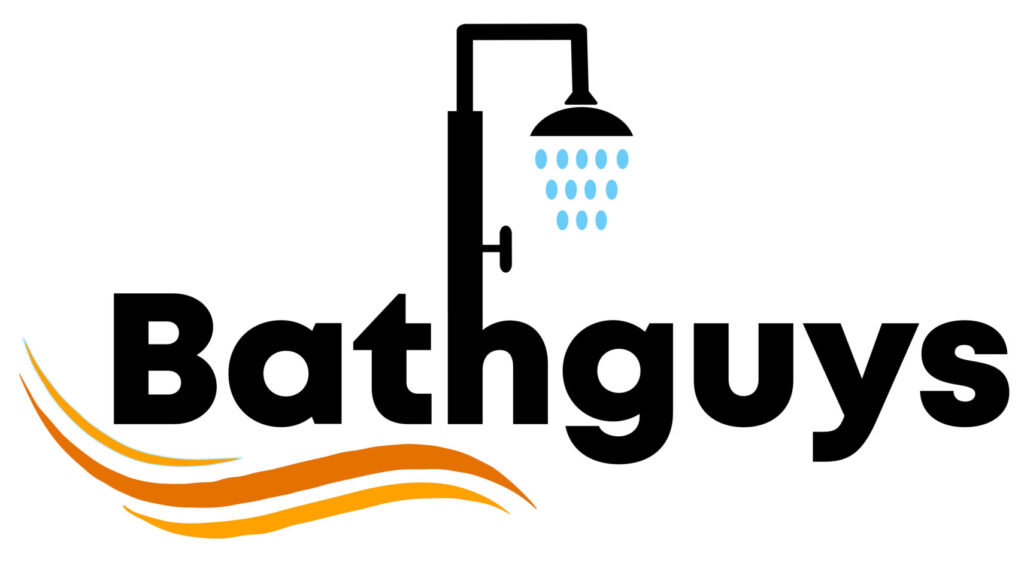Introduction
Planning a bathroom renovation in Toronto homes can feel overwhelming—especially when you’re not sure where to start. With so many choices for designs, materials, contractors, and costs, it’s easy to get confused or make mistakes that could delay your project or raise your budget. But don’t worry—you’re not alone.
In this blog, we’ll walk you through everything you need to know about planning a bathroom renovation in Toronto. From setting your budget to choosing the right materials and finding trusted contractors, you’ll learn how to avoid common mistakes and get the beautiful, functional bathroom you’ve been dreaming of. Let’s make your renovation stress-free and successful!
Why Planning a Bathroom Renovation in Toronto Homes Matters
Renovating a bathroom might seem like a simple upgrade, but in a city like Toronto—where homes vary from modern condos to century-old houses—proper planning is essential. Without a clear plan, homeowners often face unexpected delays, hidden costs, or poor workmanship that could have been avoided.
Toronto’s unique housing market and climate bring specific challenges. Older homes may have outdated plumbing or hidden water damage, while newer builds often come with strict building codes and space limitations. That’s why planning a bathroom renovation in Toronto isn’t just about picking out pretty tiles—it’s about understanding what lies beneath the surface and ensuring your design, budget, and timeline align.
Good planning helps you:
- Stay on budget by avoiding costly last-minute decisions
- Reduce delays by ordering materials early and scheduling trades in advance
- Avoid surprises by inspecting for structural issues or code violations early on
- Work with trusted professionals who know local requirements and expectations
Most importantly, planning ensures your bathroom meets your needs—whether that’s creating a spa-like retreat, improving functionality, or preparing for resale. With the right strategy, your bathroom renovation can add significant value and comfort to your Toronto home for years to come.
Step 1: Assess Your Needs & Budget
Before you begin any bathroom renovation in your Toronto home, the first and most important step is to understand why you’re renovating and how much you’re willing to spend. This helps guide every decision that follows—from layout and materials to timelines and contractors.
Define Your Goals
Start by asking yourself: What do I want from this renovation?
Are you looking for better functionality, more storage, a modern look, or improved accessibility? For example, families may need double sinks and durable finishes, while seniors may prioritize a walk-in shower with safety bars. Clearly outlining your goals helps shape the scope of work and ensures you get results that fit your lifestyle.
Set a Realistic Budget
Bathroom renovation costs in Toronto can vary greatly depending on the size, design, and extent of the work. On average:
- Cosmetic upgrades (paint, fixtures, lighting): $8,000–$15,000
- Full remodels (tile, plumbing, layout changes): $20,000–$40,000+
Keep in mind that labour costs in the GTA are generally higher than in other regions. Also, older Toronto homes may have hidden issues like outdated plumbing or water damage, which can impact your budget.
Plan for Surprises
No matter how well you plan, unexpected expenses can pop up during a renovation. Always set aside 10–20% of your total budget as a contingency fund. This safety net helps you handle surprises without halting the project.
By clearly understanding your needs and setting a realistic budget, you’ll lay a solid foundation for your bathroom renovation in Toronto—one that helps you stay focused, make better choices, and avoid costly mistakes.
Step 2: Create a Detailed Scope of Work
Once you’ve defined your goals and budget, the next step in planning a bathroom renovation in your Toronto home is to create a clear scope of work. This document outlines exactly what will be done, who will do it, and when. Without a well-defined scope, your project can easily face delays, budget overruns, or miscommunication with contractors.
What Should Be Included in the Scope?
A detailed scope of work helps keep your renovation organized and efficient. Here are the key elements it should include:
- Demolition tasks – What will be removed? (Old tiles, tub, vanity, etc.)
- Plumbing and electrical work – Will pipes or wiring be moved or updated?
- New installations – Fixtures, flooring, lighting, cabinetry, tiles.
- Design elements – Paint colours, tile layout, finishes.
- Timeline – Start and end dates, major milestones.
- Cleanup – Who handles debris removal?
Make sure to write everything down, even small details. For example, specifying the type of grout or the direction of tile layout can prevent confusion later.
Why It’s Crucial in a Toronto Renovation
Toronto homes—especially older ones—often have hidden challenges like outdated plumbing or uneven walls. A detailed scope helps contractors plan for these issues in advance. It also makes it easier to get accurate quotes from multiple renovators since everyone is bidding on the same work.
Preventing Scope Creep
One common issue in bathroom renovations is scope creep—when new tasks are added mid-project, increasing time and cost. To avoid this:
- Stick to the original plan unless absolutely necessary.
- If changes are needed, request a written change order outlining the new cost and timeline.
- Use a final punch list at the end to ensure everything promised has been completed.
By investing time into writing a proper scope of work, you protect your budget, reduce stress, and ensure your bathroom renovation in Toronto runs as smoothly as possible.
Step 3: Select Materials & Fixtures
Choosing the right materials and fixtures is a key part of planning a bathroom renovation in Toronto homes. The options you pick will affect not just how your bathroom looks, but also how long it lasts and how easy it is to maintain.
Focus on Function, Style, and Durability
When selecting tiles, vanities, tubs, and other elements, balance style with practical needs:
- Flooring: Porcelain tiles are a popular choice in Toronto due to their water resistance and long life. Heated floors are also a smart upgrade for cold Canadian winters.
- Vanities & Storage: Floating vanities offer a modern look and make cleaning easier. Choose moisture-resistant materials to avoid warping.
- Shower & Tub: Frameless glass showers and deep soaking tubs are in demand, but make sure they fit your space and plumbing layout.
- Lighting: Layered lighting with pot lights, vanity lights, and dimmers enhances function and mood.
Consider Local Trends and Climate
In Toronto, many homeowners prefer neutral tones, matte black finishes, and minimalist designs. At the same time, durability is essential—materials must stand up to humidity and temperature shifts. Look for mold-resistant paint, waterproof wall panels, and rust-proof hardware.
Energy Efficiency & Rebates
Opting for energy-efficient fixtures like low-flow toilets, LED lighting, and water-saving shower heads not only lowers your utility bills but may also qualify for local rebates or incentives through programs in Ontario.
Pro Tip: Finalize Materials Early
To avoid project delays, order all major materials before demolition begins. This includes tiles, vanity, faucets, shower glass, and mirrors. Having everything on hand helps contractors stay on schedule and reduces the risk of last-minute substitutions.
By choosing high-quality materials and well-designed fixtures, you ensure your Toronto bathroom renovation is both beautiful and built to last.
Step 4: Hiring a Contractor in Toronto
One of the most important steps in planning a bathroom renovation in Toronto homes is finding the right contractor. A skilled and reliable renovator can make the difference between a smooth, on-time project and a stressful, costly experience.
Where to Start Your Search
Begin by asking friends, neighbours, or family members who’ve recently completed a renovation. You can also explore trusted platforms like:
- HomeStars
- TrustedPros
- Houzz
- Google Business Profiles
Make sure the contractor specializes in bathroom renovations and is familiar with Toronto building codes and permit requirements.
What to Look for in a Contractor
When shortlisting professionals, pay close attention to:
- License & Insurance – Always choose a licensed contractor with liability coverage and WSIB (Workers’ Safety Insurance Board) registration.
- Experience – Look for someone with a proven track record of bathroom remodels in Toronto or the GTA.
- Portfolio & Reviews – Check before-and-after photos and read online reviews. Pay attention to comments about punctuality, communication, and work quality.
- Transparency – A good contractor will provide a clear quote, detailed scope of work, and a written contract.
Step 5: Planning the Timeline
Creating a clear and realistic timeline is a vital part of planning a bathroom renovation in Toronto homes. A proper schedule helps you stay on track, reduces stress, and ensures your project moves forward without unnecessary delays.
Understand the Phases of a Bathroom Renovation
While every project is unique, most bathroom renovations follow a similar sequence:
- Design & Planning: Finalizing layout, materials, and scope (1–2 weeks)
- Permits (if needed): Plumbing or structural changes may require City of Toronto approval (1–3 weeks)
- Demolition: Removing old fixtures, tiles, and finishes (2–3 days)
- Rough-ins: Plumbing and electrical updates (3–5 days)
- Inspections: Required if permits were pulled (1–2 days)
- Installation: New flooring, tiles, fixtures, lighting, vanity (1–2 weeks)
- Finishing Touches: Painting, sealing, and final cleanup (2–3 days)
Typical Timeline Estimates
- Cosmetic Upgrades: 1–2 weeks
- Full Renovation: 3–6 weeks
- Luxury or Custom Designs: 6–8+ weeks
Older homes in Toronto may take longer due to structural surprises or the need for code upgrades. Always build some flexibility into your schedule.
How to Minimize Delays
To keep your bathroom renovation on schedule:
- Order all materials early – Backorders or delivery delays are common.
- Get permits in advance – Ask your contractor about what’s needed.
- Communicate often – Weekly updates help catch small issues before they become big problems.
- Avoid mid-project changes – Last-minute decisions can push your timeline back by days or even weeks.
By planning a clear timeline and working closely with your contractor, you’ll ensure your Toronto bathroom renovation moves forward smoothly and finishes on time.
Step 6: Managing the Renovation
Even with the best plan in place, successful execution is key. Managing the process closely is an important part of planning a bathroom renovation in Toronto homes. It helps avoid costly mistakes, keeps the project on schedule, and ensures the final result matches your vision.
Stay Involved with Regular Check-ins
While your contractor will handle the day-to-day work, your role is to stay informed and involved:
- Schedule weekly check-ins to review progress.
- Walk through the site regularly to catch issues early (such as tile alignment or fixture placement).
- Take photos of each stage—especially rough-ins—so you have a visual record of what’s behind the walls.
Strong communication helps avoid confusion and allows small issues to be resolved before they become big problems.
Conclusion
Planning a bathroom renovation in Toronto homes takes time, research, and the right strategy. From setting a realistic budget to choosing quality materials and hiring experienced contractors, every step plays a vital role in the success of your project. By creating a clear scope of work and managing the renovation process closely, you can avoid surprises and stay on track. Whether you’re updating a small powder room or doing a full bathroom remodel, thoughtful planning ensures beautiful, lasting results. With the right team and a step-by-step plan, your dream bathroom is well within reach.
Frequently Asked Questions
1. How much does a bathroom renovation cost in Toronto?
Bathroom renovation costs in Toronto typically range from $8,000 to $15,000 for cosmetic upgrades, and $20,000 to $40,000 or more for a full remodel. Prices can vary based on materials, layout changes, and the age of your home.
2. How long does a bathroom renovation take in Toronto?
A cosmetic renovation usually takes 1–2 weeks, while a full remodel can take 3–6 weeks. Custom features or permit delays may extend the timeline, especially in older Toronto homes.
3. Do I need a permit for a bathroom renovation in Toronto?
You may need a permit if your renovation involves plumbing, electrical changes, or structural modifications. Your contractor can guide you through the permit process with the City of Toronto.
4. How do I choose the right contractor for a bathroom renovation?
Look for licensed and insured contractors with experience in bathroom renovations. Check online reviews, request references, and compare quotes based on the same scope of work to find the best fit.
5. What materials are best for bathroom renovations in Toronto’s climate?
Moisture-resistant and durable materials like porcelain tiles, quartz countertops, and mold-resistant paint are ideal. These choices handle humidity well and last longer in Canadian homes.





